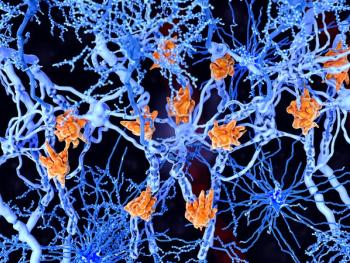
New research highlights the effectiveness of RSV preF vaccines in preventing severe respiratory infections in older adults.
Kimberly Rath, PharmD, is a freelance health writer who previously worked as a clinical pharmacist with Elevance Health for a decade. She has also worked for Amerigroup and Sentara Group.

New research highlights the effectiveness of RSV preF vaccines in preventing severe respiratory infections in older adults.


Alopecia areata significantly impacts quality of life, driven by appearance-related anxiety related to where hair loss occurs more than how much is lost.

Sequential BTK and BCL2 inhibitors yield high initial response rates, but durability remains a challenge in the real-world setting for CLL.

A new study links immune markers and coping patterns to disease control in adolescents with chronic urticaria.

A nationwide Danish cohort study reports cardiovascular events up to 1 year after infection, comparable to that observed with influenza.

The novel biomarker APP performed comparably to Fibrosis-4 overall and showed improved cirrhosis detection in patients with diabetes.

Investigators will test whether adding anodal transcranial direct current stimulation to exergame-based rehabilitation improves short- and long-term cognitive outcomes in 80 adults with multiple sclerosis.

Adequate CD19-positive cell content is required to reliably identify both dominant and subclonal TP53 mutations.

Elevated levels of a combined biomarker integrating CRP, triglycerides, and glucose are associated with increased risk of rheumatoid arthritis.

Altered expression across multiple ncRNA classes consistently correlates with inferior OS, PFS, and TTT in nearly 5000 patients.

A combined assessment of genetic, serologic, and clinical factors may enhance early recognition of patients with RA who are most at risk for ILD.

Modern ibrutinib-based approaches substantially narrow the traditional survival gap observed in CLL.

A national survey analysis suggests a link between higher Food Inflammation Index scores and metabolic liver disease.

CAR T-cell therapy achieves meaningful responses and survival gains in this aggressive CLL complication.

Diet and metabolic health may have causal effects on MS development, suggesting that a healthy weight, controlling glucose levels, and reducing red meat intake may delay or prevent onset.

Despite improved selectivity, real-world data point to persistent cardiovascular challenges even with next-generation BTKi therapies.

A national analysis of CDC data over 25 years revealed persistent sex, racial, and regional disparities in pneumonia and pulmonary fibrosis mortality.

An IPF-derived biomarker profile shows a reproducible association with ILD risk across three RA cohorts.

A new population pharmacokinetic and exposure-response analyses shows no added efficacy or safety benefit from higher doses of serplulimab.

Metabolic intermediates were identified as active participants in fibrosis progression and potential targets for next-generation therapies.

Structural and microbial findings point to a potential nasal-brain immune connection in patients with multiple sclerosis (MS).

A multidisciplinary approach that includes addressing social determinants of health reduces time to remission despite higher initial costs.

Serum biochemical fingerprints can stratify chronic lymphocytic leukemia (CLL) outcomes and uncover heterogeneity within molecularly defined low-risk disease.

Tumor-first multigene testing boosts diagnostic accuracy, minimizes duplication, and aligns with professional society recommendations for integrated sequencing.

Metallomic correlations suggest environmental and metabolic metals act together to accelerate renal damage.

Integrated data suggest higher tryptophan activity is associated with reduced inflammation and improved outcomes in RA.

Lesion-based disconnectome mapping suggests that the pattern, not the quantity, of brain damage determines cognitive outcomes in patients with MS.

A machine learning–driven web tool based on 13 standard patient metrics demonstrates strong predictive performance for MASLD, supporting early clinical intervention.

Patients with NOTCH1 mutations derive greater benefit from BTK inhibitor treatment than from immunochemotherapy for chronic lymphocytic leukemia (CLL).

Published: August 22nd 2025 | Updated:

Published: June 25th 2025 | Updated:

Published: October 6th 2024 | Updated:

Published: August 21st 2025 | Updated:

Published: December 19th 2025 | Updated:

Published: April 28th 2024 | Updated:

259 Prospect Plains Rd, Bldg H
Cranbury, NJ 08512
© 2025 MJH Life Sciences®
All rights reserved.
